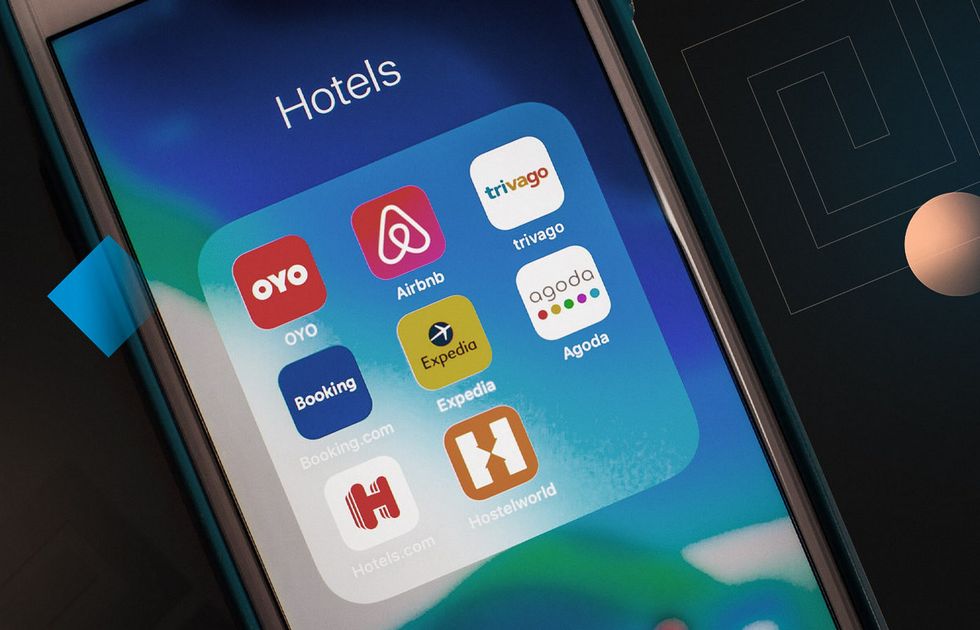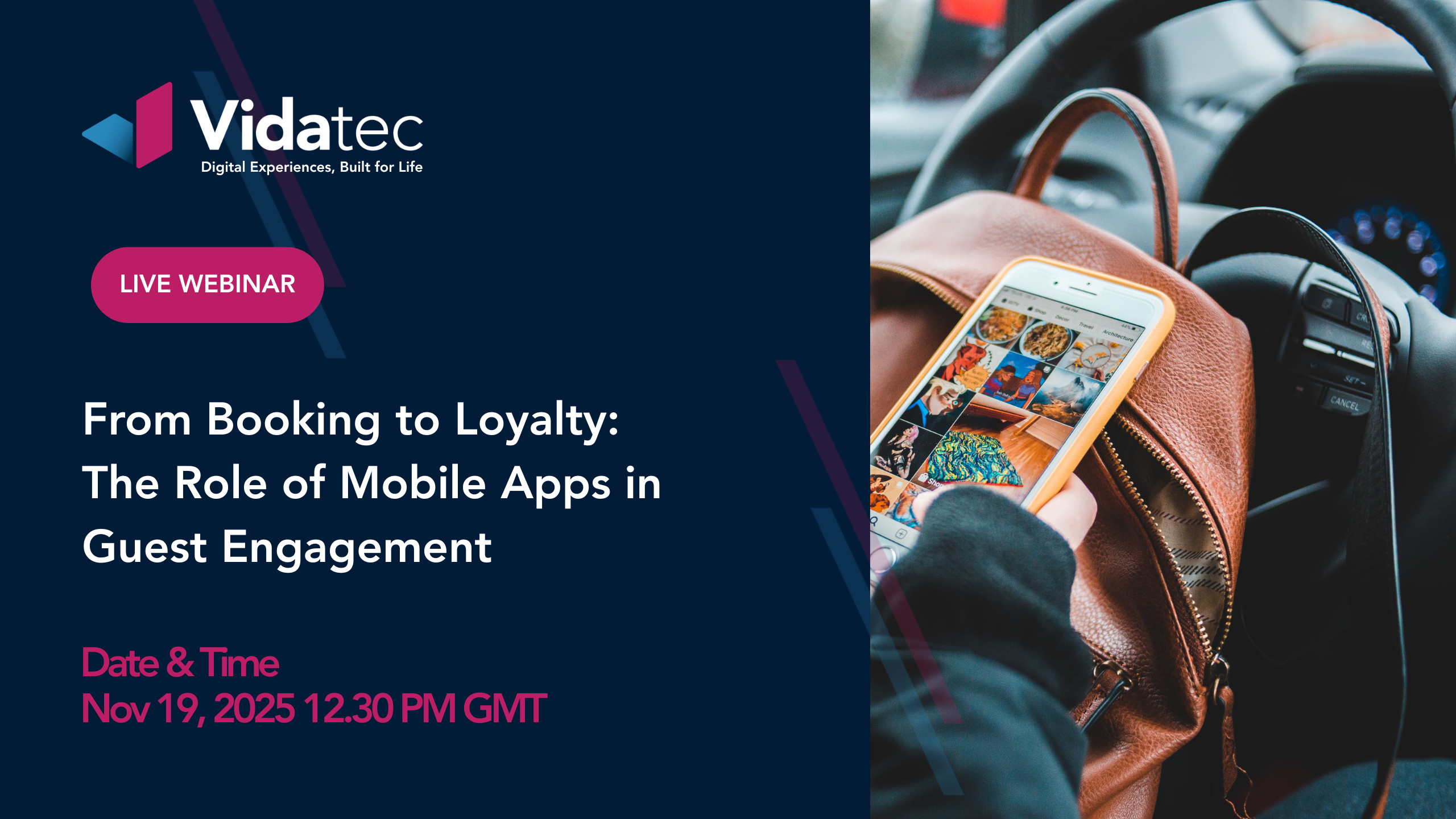Hospitality Loyalty Apps: The Secret to Seamless, Repeat Guest Journeys
Guest loyalty has always been the backbone of hospitality, but in today’s digital-first world, loyalty isn’t built at the front desk, it’s built on mobile. From seamless bookings to personalised recommendations, mobile apps now play a crucial role in keeping guests engaged and coming back.
Yet many hotels and hospitality businesses are still relying on outdated systems that frustrate customers and erode trust. The good news? There’s a better way.
The evidence is clear: consumers increasingly expect technology to enhance their hospitality and entertainment experiences. A Skift report found that 58% of travelers surveyed are more likely to book with a brand that uses the latest tech. And guests now want more than just convenience; they want recognition, and a sense that their experience is tailored to them with 65% of travelers reporting that personalisation is a significant driver of loyalty. Mobile apps are the key to delivering that.
In this blog, we’ll break down the critical role mobile apps play in boosting loyalty, customer engagement and, ultimately, revenue with practical steps and insights you can put into action straight away:
- Why Outdated Systems Damage Guest Loyalty
- Finding Your Real Starting Point: How to Modernise Hospitality Apps
- From Frustration to Loyalty: How Personalisation Creates Repeat Guests
Because when it comes to hospitality apps, it’s not about having more features — it’s about creating the right experience for your guests.
Why Outdated Systems Damage Guest Loyalty
Outdated apps, slow booking systems, and inconsistent digital channels aren’t just minor annoyances — they actively drive guests away.
- Missed bookings: A slow or glitchy booking experience can make a guest abandon their reservation altogether.
- Frustrated customers: Confusing navigation or multiple logins create friction that impacts satisfaction.
- Reduced loyalty: Guests remember experiences, not promises. Repeated frustration erodes trust and loyalty.
Hospitality isn’t just about rooms; it’s about the experience from start to finish. And increasingly, that experience starts on a screen. With 62% of hotels now moving towards fully contactless experiences, the industry is shifting fast, and guests are responding positively. In fact, 80% of travelers say they would download a hotel app that allows them to check in, check out, and access all hotel information.
Brands like Crystal Ski have seen that even small improvements in digital experience can significantly increase repeat bookings and customer satisfaction. When the tech works well, it’s invisible, but when it doesn’t, it becomes the story guests tell.
Finding Your Real Starting Point: How to Modernise Hospitality Loyalty Apps
Before investing in a new app, it’s crucial to understand where your current systems fall short and what your guests actually need. Modernisation isn’t just about technology, it’s about solving real problems.
Ask yourself:
Which processes are frustrating your guests most? (Think booking, check-in, room service.)
- Are your digital tools truly easy to use for both staff and guests?
- Is personalisation integrated into your app experience, or is it an afterthought?
- Are you collecting the right data to improve decisions and tailor experiences?
The shift towards mobile isn’t just happening in hotels. In 2024, nearly 42% of limited-service restaurant operators invested in contactless and mobile payment technology. And that trend is expected to continue. Guests want speed, simplicity, and control. They want to order room service or book a table without picking up the phone. In fact, 47% of guests say they’d be more likely to order room service if they could do it via an app, and 48% would be more likely to dine in the hotel restaurant if app ordering was available.
Vidatec works with hospitality teams to map out friction points and identify opportunities where apps can make the biggest difference. By starting with the real guest experience (not just the tech) you can implement solutions that are both effective and adopted.
From Frustration to Loyalty: How Personalisation Creates Repeat Guests
Personalisation is no longer optional, it’s expected. Guests want offers, recommendations, and experiences that feel made for them, and mobile apps are the perfect vehicle.
Practical ways apps can create loyalty:
- Tailored promotions: Send guests discounts or add-ons based on past stays or preferences.
- Smart suggestions: Recommend spa services, excursions, or dining options at the right moment.
- Seamless communication: Allow guests to message staff directly through the app for instant support.
- Rewarding engagement: Integrate loyalty points, VIP perks, or exclusive content directly into the app.
The link between satisfaction and loyalty is well established, but recognition is the missing piece. When guests feel seen and understood, they’re far more likely to return. And mobile apps make that possible at scale. Despite this, only 28% of event organisers believe tech-enabled experiences are important, even though 83% of attendees say their phones improve the event experience. That disconnect is a missed opportunity.
By combining smart tech with thoughtful design, hospitality brands can turn everyday interactions into moments of delight, strengthening loyalty and increasing revenue over time.
Join Our Free Webinar: Loyalty Unlocked
To help hospitality businesses implement these strategies, Vidatec is hosting a free 30-minute webinar:
👉 Loyalty Unlocked: The Power of Mobile Apps in Hospitality
In this session, you’ll discover:
– How personalisation in apps drives loyalty
– Ways modern app development lowers costs and simplifies delivery
– The hidden cost of outdated systems on guest experience
– Lessons from leading hospitality brands like Crystal Ski
What You’ll Take Away
– Practical steps to modernise your guest experience
– Easy ways to scale personalisation without adding cost or complexity
– A clear roadmap to replace outdated systems and avoid common mistakes
Register for the webinar here to unlock your loyalty potential.
Exploring a mobile app for your hospitality business doesn’t have to be complicated. With expert guidance, the process can be faster, smarter, and more effective — helping you make decisions with confidence and focus.
At Vidatec, we work with hospitality teams to:
– Understand your current digital systems and guest experience gaps
– Identify opportunities where a mobile app will have the biggest impact
– Discuss practical, cost-effective solutions tailored to your business
– Create a clear, actionable roadmap for implementation
– Ensure personalisation and usability are at the heart of your solution
Whether you’re just testing the waters or ready to modernise your entire guest experience, our team can guide you every step of the way.
Speak to a Vidatec expert and book your free discovery session today to start exploring mobile app solutions that will delight your guests and boost loyalty.
Hospitality is built on experience, and apps are now the foundation of that experience. Outdated systems hurt loyalty and revenue, but modern, personalised apps can transform every interaction into an opportunity to delight guests. Start by understanding your current gaps, focus on personalisation, and give your guests a digital experience they’ll remember, and come back for.
Let Our Team Help Your Team
Ready to elevate your guest experience? Speak to our team at Vidatec to discover how we can design and build the digital solutions your travellers expect.
Meet the author

Nick Welch
CTO
Take the Next Step to Delivering a Better Experience Through AI with Vidatec
Learn More About work work in the Travel & Tourism sector
Learn more about our work and discover how our innovative mobile solutions have helped transform the way brands engage with their customers, from seamless bookings to personalised loyalty programs.
Register for Our Guest Experience Webinar
Join our expert-led, 30-minute session and explore how mobile apps can transform guest engagement from booking to loyalty. Learn practical strategies and insights from our CEO, Ross Wilson, and CTO, Nick Welch.




